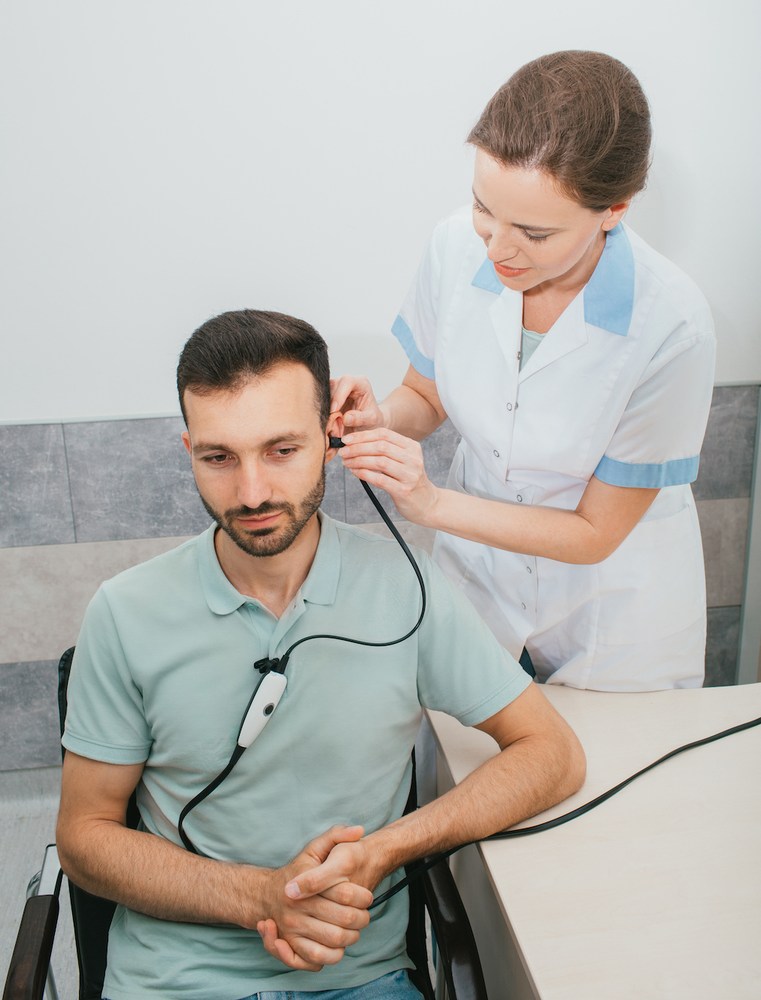Occupational Hazards: Professions at Risk for Hearing Loss
Hearing is an essential part of our daily lives, yet we often take it for

By: admin | October 24, 2023
While fall can be a beautiful time of year, when you have hearing aids, there are some extra steps to their care that you should consider. The fall usually brings with it cooler temperatures and plenty of rain. This is why it is important to understand what can impact your ears and your hearing aids during this time.
Have you ever noticed that your ears might go numb in the cold weather? Or they can feel like they are stinging? Most other parts of our body have some level of fat, which protects them a little from the cold. Our ears don’t have an extra layer of protection, so they get colder faster and stay cold, too! Hats and earmuffs are popular around this time simply to keep your ears warm.
For those who live in a windy location, you are more likely to feel the cold even more. The cold and the wind can contribute to hearing loss and tinnitus. The most common issue from the cold weather is trapped water, which leads to infections and earwax build-up.
While it is not the cold itself that can affect your hearing aid, the circumstances around cold temperatures can. Rainwater, condensation and other moisture sources can build up in the hearing aid. If you are noticing a buildup of moisture in your hearing aids, let them dry out in a safe spot. Talk with your audiologist about how the weather can affect your hearing aids.
When the fall months start, you must check your hearing aid regularly for moisture buildup. The receiver, microphone and batteries can all be damaged by moisture build-up. Here are some signs that you have moisture damage in your hearing aid:
The sound quality of your hearing aid will diminish when moisture infiltrates the device, but it will gradually restore to its normal state as it dries out. However, if this pattern continues over time, your device may sustain damage, talk with your audiologist if you notice any distorted sounds coming from your hearing aids.
When you aren’t sure your hearing aid has been well protected against the elements in the fall, here are a few things you can do regarding troubleshooting:
If none of these things help with getting the sound back to normal, it is a good idea to schedule an appointment with your audiologist to fix the issues on your hearing aids.
There are multiple ways that you can protect your hearing aid in the fall season. Prevent your hearing aid from getting wet whenever possible, and an umbrella is the perfect solution. A raincoat with a large hood that is completely waterproof is also a good option. Earmuffs are ideal for protecting your ears and your hearing aids at the same time and can help keep them dry in light drizzle. Lastly, sweatbands are great for those who like to do sports in the winter and want to prevent sweat from getting into their hearing aid.
Cleaning and drying your hearing aid every day is something that you can’t skip in the cooler months. You should follow the directions for cleaning given to you with your hearing aid. Most of the time, you can do the following:
A hearing aid dehumidifier is good for eliminating moisture from your hearing aids. As it will dry out the hearing aid. Any time you think your hearing aid might have moisture build-up, place them in there.
If you want to learn more or want advice on how to take care of hearing aids or for hearing care, call Hearing Aid Consultants of North Mississippi at (662) 234-1337.

Hearing is an essential part of our daily lives, yet we often take it for
By: admin | January 31, 2024

If you have experienced a difficulty understanding speech, or following
By: admin | December 28, 2023

Forty-eight million Americans are living with hearing loss, which is
By: admin | November 25, 2023
